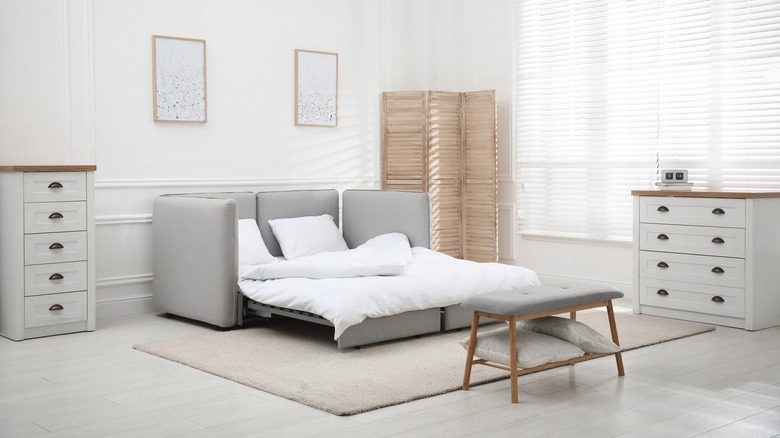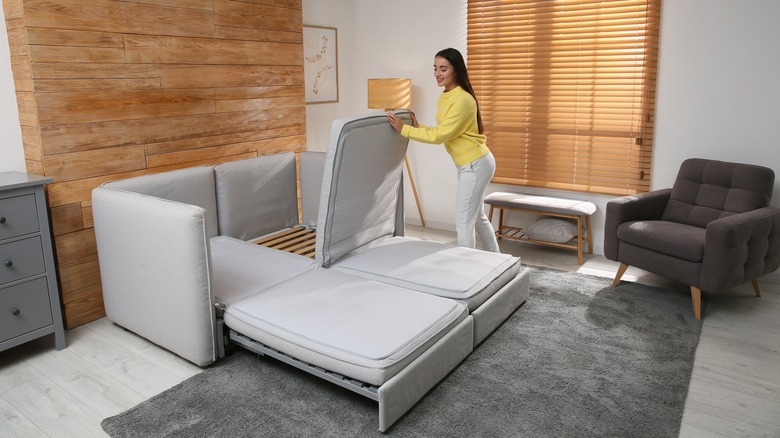Sofa Beds Vs. Futons: What's The Difference?
It's easy to get mixed up with all the various types of furniture out there because they have a lot of similarities and can often achieve the same purpose. On the differences between couches and sofas, for example, sofas are the more traditional of the two with dependable arm and back support, while couches are the more casual choice to have in a home. While we often accidentally fall asleep on them, neither is the most suitable for that purpose since their main purpose is for sitting.
On the other hand, sofa beds and futons are united by the more specific function of doubling as couches and beds. Futons originated in Japan and are a type of bedding or mattress with a very simple frame. They can also be used directly on the floor without a frame. Sofa beds are adaptable couches that can be made into beds, per Circle Furniture, and they usually come with armrests and sometimes storage space. Here are the primary differences between the two.
Primary differences
A sofa bed fulfills the functions of both a couch and a bed. It has a frame that can be folded into a seating position or laid out like a bed. This type of furniture is often heavy and looks exactly like a regular couch when folded and covered in cushions. Alternatively, futons are light, easy to move around, and don't take up a lot of space, which is helpful if you don't want something that's fixed to a spot or if you have limited space. While it's great that traditional futons can be folded and put away when not in use, also note that they might give in to wear and tear quicker than sofa beds, per Nectar Sleep.
Sofa beds are great for their versatility and are typically used to accommodate guests or serve temporary sleeping needs; futons provide better comfort for sleeping but don't always provide enough of a standard couch look or feel. Futons also have a limited range of design options, whereas you can always find a varied mix of designs and upholstery textures with sofa beds.
More differences to consider
According to Four Centuries, the traditional futon is very beneficial since it only contains bedding items like a liner and duvet. The lack of hardware, springs, and frames makes a futon easy to set up and move around. You'll even be able to maintain a quiet atmosphere since there are no moving parts to make noise. Futons are also easier to clean since you only need to worry about the bedding. Because there are fewer parts and their appearance is typically simple, futons tend to be more affordable than sofa beds.
Sofa beds, on the other hand, can achieve a sophisticated look since a couch is an important part of a space's décor. Because they can be unfolded into a bed, that adjustability provides added value for a living room. They also work great in a guest room by providing an additional place to sleep when needed, yet they can be folded into seating when not in use to create more floor space. This foldable frame usually means there is a solid metal bar that runs down the middle of the bed which can be uncomfortable to sleep on, therefore, you'll want to pair it up with quality bedding.


